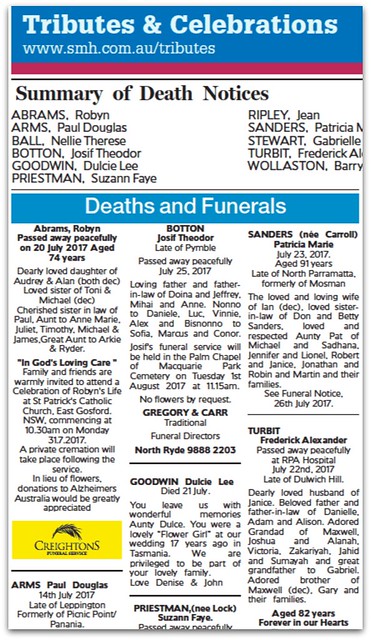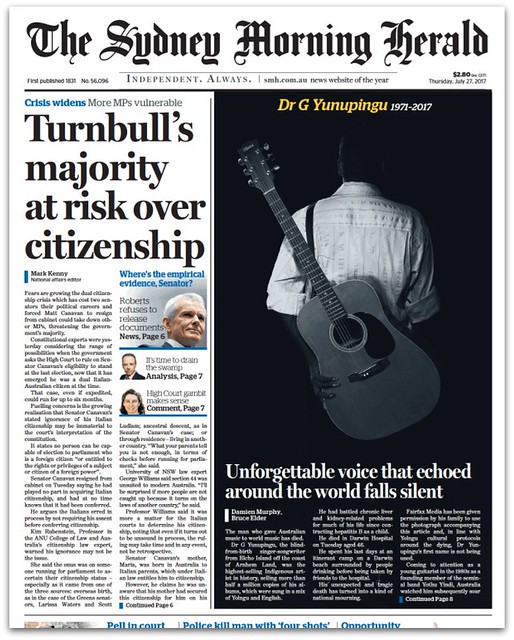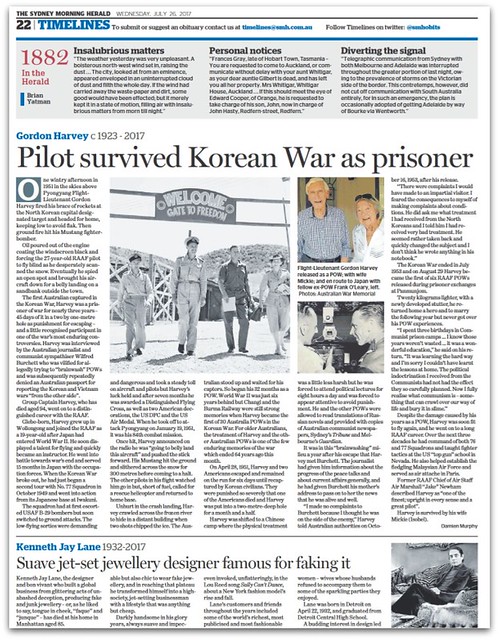Yesterday I enjoyed Eureka Street's article about a writer exercising his 'morbid fascination for the recently deceased' by reading the death notices in the newspaper.
'[They] offer up the real inhabitants of our world - our neighbours and bosses, our friends and partners, our mothers, our fathers, our grandparents... These people are not the airbrushed celebrities, political blowhards or violent predators that often adorn the front pages.'
I have a similar morbid fascination. In today's Sydney Morning Herald death notices, I read about Barry. He was 'a unique man who faced life with positivity, determination and a smile that could light up a room'.
He will be 'greatly missed', but the notice promises that his family and friends will 'remember his wacky jokes, shaggy dog stories and universal theories'.
I wish that I too could enjoy some of Barry's jokes, stories and theories. But death notices don't go beyond the bare bones of the person's life. This kind of detail is shared only if the person is famous, and it's in the obituaries rather than the death notices.
Unusually today's obituary is on the front page because of its particular poignance. Its subject is not an airbrushed celebrity but the much loved blind Aboriginal singer Dr G Yunupingu, who died this week at the age of 46.
The obituary quotes a music critic's estimation that Yunupingu possessed 'the greatest voice this continent has ever recorded', one 'so beautiful and so emotion-laden that it invest[ed] every song with a passion and pathos which [were] quite overwhelming'.
In a way the complementarity of having both the paid death notices and the featured obituaries works well. Unfortunately, in terms of accessibility it does not fare well in the transition from its more intuitive presentation in print to obscurity in the now more significant online versions of the newspapers.
The death notices are very difficult to find, at least in the Sydney Morning Herald. You need to scroll to the bottom of the home page and click on 'Tributes' under 'Classifieds'. Sadly the message of this is that the deaths of ordinary people don't matter.
But the same can also be said for the lives of the famous that are written up in the obituaries. Curiously you need to click through to the 'Comment' section and go through to the second tier of the submenu there to find the 'Obituaries' link.
Worse than that, the obituaries page - headed 'Timelines' - no longer appears in the print edition every day. But only when there is space to fill. The Herald admitted as much to me when I called them a year or two ago to ask why they were not appearing every day as they had in the past. I was told they were not a priority: 'We don't always have space for the obituaries'.
Links: morbid notices obituaries



